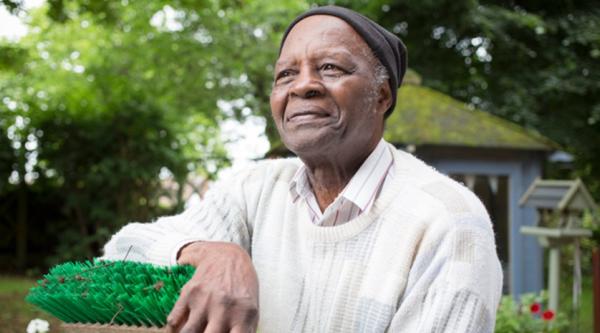The middle stage of dementia
In the middle stage of dementia, symptoms become more noticeable and the person will need more support in managing daily life. This stage of dementia is often the longest. On average it lasts about two to four years.
- The progression, signs and stages of dementia
- Early-stage signs and symptoms of dementia
- You are here: The middle stage of dementia
- The later stage of dementia
- The progression, signs and stages of dementia – useful organisations
The progression and stages of dementia
In the middle stage of dementia, symptoms become more noticeable and the person will need more support in managing daily life. The person may now need frequent reminders and some help to wash and dress (for example, having their clothes laid out for them).
Some people with dementia will benefit from a paid carer coming into their home. Or some may move into housing with dementia support on site (known as extra-care housing or assisted living).
What are the symptoms of middle-stage dementia?
For many people with dementia, the middle stage is when symptoms will get worse. This is also when changes in behaviour generally start. This stage of dementia is often the longest. On average it lasts about two to four years, during which time symptoms are likely to develop in the following ways:
- Existing problems with memory and thinking will worsen in the middle stage. Many people find it harder to recognise family or close friends. They may confuse them with strangers. Remembering new information will also get harder. This may cause the person to repeat the same question over and over.
- The way a person speaks or uses language is likely to get worse at this stage too. They may have problems finding the right word and they may forget what they are saying mid-sentence. It may get harder for them to follow what someone else is saying.
- Problems with orientation also become more severe. Someone may get confused about the time of day – for example, they may get up and dressed in the middle of the night. Or they might get confused about where they are, even at home.
- Symptoms of apathy, depression and anxiety tend to continue into the middle stage of dementia.
- In this stage many people start to strongly believe things that aren’t true (delusions). They often feel other people are going to harm them or cannot be trusted (paranoia). It is very common for a person to believe that someone is stealing from them or that a partner is being unfaithful.
- A person at this stage may also start to see and hear things that aren’t there (hallucinations). This is more common in the middle stage of Alzheimer’s disease than in vascular dementia. (Visual hallucinations in dementia with Lewy bodies are a symptom in the early stage.)
Changes like these partly explain why the person can struggle to control their emotions. Someone may get very easily upset, fearful, or angry – and switch between these quite quickly. They might be reacting to a loss of independence, misinterpreting things around or frustrated that they can’t communicate their needs.
What behavioural changes happen in middle-stage dementia?
Changes in behaviour tend to start from the middle stage of dementia. These changes are common and individual symptoms may come and go. Changes in behaviour are some of the most challenging symptoms for people with dementia and for those who support them.
Common changes that are seen in all types of dementia at this stage can include:
- agitation and restlessness – for example, fidgeting or walking up and down
- screaming or shouting
- repetitive behaviour – for example, repeatedly pulling at clothes or asking the same question over and over
- following a carer around (trailing) or constantly checking that they are near
- disturbed sleep patterns – sleep is particularly disrupted, and in a different way, in a person with dementia with Lewy bodies
- losing inhibitions – for example, saying things aren’t appropriate or undressing in public (not just in frontotemporal dementia).
People may become more agitated, aggressive or confused in the late afternoon or early evening, a pattern known as ‘sundowning’.
These behaviours are often because the person has a specific physical or emotional need (for example, hunger or boredom) that is not being met.
For more information see our pages on 'Changes in behaviour', 'Aggression and dementia' and 'Walking about'.
What physical changes happen in middle-stage dementia?
In all types of dementia, difficulties with using the toilet can start at this stage.
In dementia with Lewy bodies, problems with movement are likely to get worse. A person’s walking gets slower and less steady, leading to a higher risk of falls.
- Page last reviewed:






